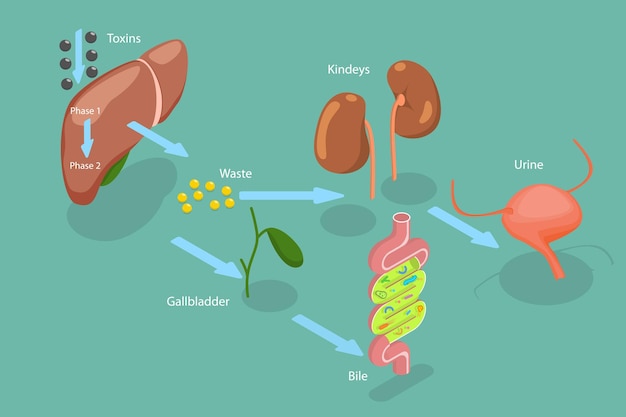
Sure, here’s the rephrased content with improved logical flow and readability, formatted for WordPress:
We all have times when we eat too much, like during holiday meals. While the body can handle occasional overeating, doing it regularly can cause more harm than just weight gain. When you eat, your organs secrete digestive enzymes to break down food into useful nutrients. Overeating or drinking excessively strains the pancreas and other organs.
The Pancreas & Pancreatic Enzymes
The pancreas is a glandular organ in the abdomen. It releases insulin and glucagon to keep your blood sugar stable, and it also secretes enzymes that digest your food. When you eat, your pancreas produces pancreatic juice containing several enzymes. Although most pancreatic enzymes assist digestion, not all digestive enzymes are made in the pancreas. The stomach, small intestines, and tongue also produce digestive enzymes.
Types of Pancreatic Enzymes
Your body has three types of pancreatic enzymes: lipolytic, amylolytic, and proteolytic. These enzymes break down fats, carbohydrates, and proteins, respectively. Once food is broken into smaller pieces, the body can absorb and use their nutrients for energy or as building blocks for organs and tissues.
Amylolytic
Amylolytic enzymes break down carbohydrates into simple sugars like glucose. These enzymes are used commercially to produce beer, food sweeteners, and paper. Amylase is a common amylolytic enzyme produced by the pancreas and present in saliva.
Lipolytic
Lipolytic enzymes digest fats. Common lipolytic enzymes include lipase, phospholipase, and lecithinase. The pancreas produces lipase, which breaks triglycerides into free fatty acids and glycerol. Other organs, including the tongue, stomach, and liver, also produce lipase. Healthcare professionals often check blood levels of amylase and other enzymes to diagnose acute pancreatitis and other pancreatic issues.
Proteolytic
Proteolytic enzymes break down proteins from your food. Examples include chymotrypsin and trypsin, which break down amino acids. These enzymes also help with digestion, support the immune system, aid blood clotting, and assist in cell division.
Should I Take Pancreatic Enzyme Supplements?
Some people take pancreatic enzyme supplements on the recommendation of their healthcare provider. Others take them to support normal digestive processes. If you experience digestive issues like constipation, gas, diarrhea, or stomach discomfort, you might benefit from these supplements. They help “predigest” protein, carbohydrates, and fats, easing stress on the pancreas and other enzyme-producing organs.
VeganZyme is a full-spectrum blend of digestive and systemic enzymes, including amylase and lipase. These plant-based enzymes support digestion, boost the immune system, and promote balance throughout the body.
How to Take Enzyme Supplements
Most enzyme supplements come in capsule form and should be taken at mealtimes. If you experience stomach discomfort when starting, it should settle down. Take enzymes with a meal or snack and a glass of cold or room temperature water. Hot drinks can damage the enzymes. For systemic support, take enzymes at least two hours before a meal with cool water.
Avoid taking enzymes with high pH foods like milk or ice cream, or with antacids containing calcium or magnesium, as these can damage the enzyme before it reaches your stomach.
Precautions & Potential Side Effects
Enzymes are generally safe, but prescription pancreatic enzymes come from pigs, which may be a concern for vegetarians, vegans, or those avoiding pork for religious reasons. Vegan-friendly enzyme supplements like VeganZyme are a good alternative. Pancreatic enzyme supplements can sometimes cause constipation if you’re not drinking enough water. Aim for half your body weight in fluid ounces each day.
Points to Remember
The pancreas produces enzymes and hormones like insulin and glucagon. Pancreatic enzymes are vital for digesting carbohydrates, fats, and proteins. Different types of digestive enzymes play unique roles in the body. For optimal health, you need optimal levels of all pancreatic enzymes. Enzyme supplements can help the body digest food properly and support systemic health.
Have you taken pancreatic enzyme supplements? Share your experiences below!



